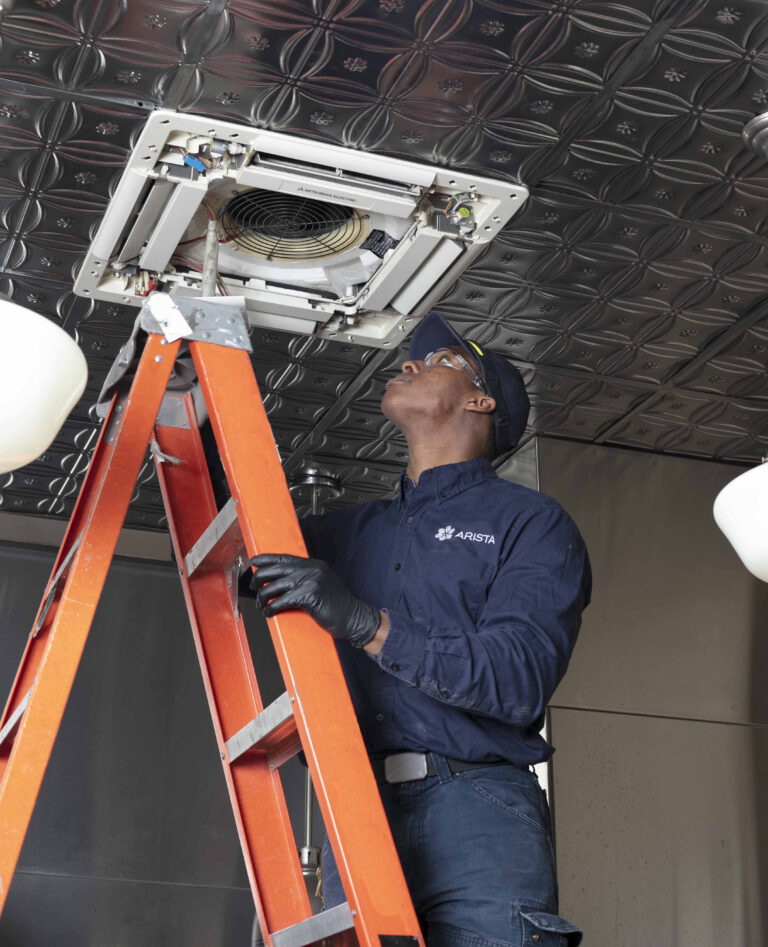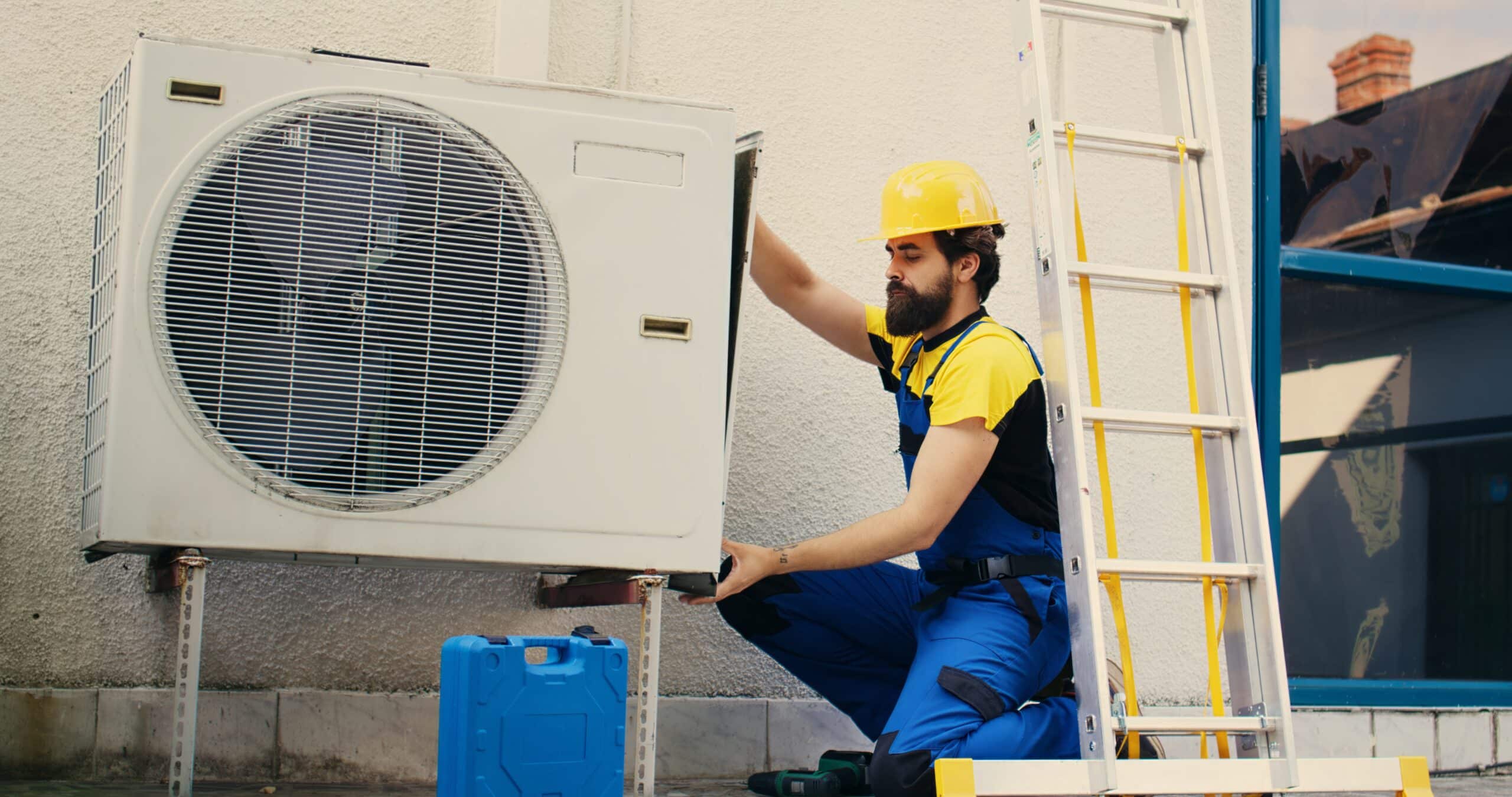How to Choose the Right Heating And Cooling System for Your Home or Workplace Requirements
Selecting the perfect HVAC system for a home or workplace is no little job. It's a process that calls for careful examination of individual heating, air conditioning, and ventilation requirements, factor to consider of different system kinds, and evaluation of power effectiveness.
Understanding the Essentials of Heating And Cooling Systems
A Heating and cooling system, a phrase for Heating, Ventilation, and Air Conditioning, is a critical aspect in preserving a comfy and healthy and balanced interior environment. The complexity of a Heating and cooling system can differ, ranging from simple single-room systems to complex systems that offer large industrial structures. Understanding these basics is the initial action in picking the appropriate Cooling and heating system.
Evaluating Your Indoor Environment Needs
Relocating from a basic understanding of cooling and heating systems, the following action entails a mindful evaluation of your particular indoor environment needs. This essential phase includes evaluating your home or office's heating, ventilation, and air conditioning requirements. It takes into consideration numerous elements such as the size of your room, insulation levels, climate, number of passengers, and certain temperature preferences. A bigger area might necessitate a more durable system, while a smaller sized area could not need as much power. High-quality insulation could minimize heating and cooling needs. Areas with severe temperatures may need systems with greater performance. One should also consider the convenience and health of passengers, as inadequate home heating or cooling can lead to pain or wellness concerns. This thorough assessment makes sure that your selected HVAC system will certainly fulfill your one-of-a-kind demands.
Checking Out Different Types of HVAC Systems
Browsing via the complexities of a/c systems can be difficult. It is vital to recognize the variety of a/c selections offered, and to make an educated selection based on cost and efficiency comparisons. This exploration will offer a more clear perspective on what each sort of a/c system uses.
Understanding Heating And Cooling Varieties
Ever before questioned regarding the wide variety of choices when it comes to A/c systems? Central A/c systems, the most typical, use ductwork to disperse warm or great air throughout the residence. Packaged home heating and air conditioning systems consist of the blower, home heating, and cooling parts all in one device.

Expense and Performance Contrast
When checking out the vast selection of heating and cooling systems, it is crucial to consider both expense and efficiency. More affordable versions might appear attractive. They are typically less effective, resulting in greater power expenses over time. On the contrary, a lot more expensive systems tend to be extra energy-efficient, saving cash in the future.
As an example, central air systems, though expensive, are usually a lot more effective than window units. Similarly, warmth pumps are expensive but supply heating and cooling down abilities, making them an affordable, year-round solution.
Moreover, it is very important to consider the system's Seasonal Energy Effectiveness Proportion (SEER) A higher SEER score indicates better power efficiency, which translates to reduced operating expenses (DMAK's HVAC Edwardsville IL Experts). Thus, investing sensibly in an appropriate heating go to this website and cooling system relates to long-lasting financial savings.
Energy-Efficiency and Your Cooling And Heating System
The significance of energy-efficiency in heating and cooling systems can not be overemphasized. The primary step in the direction of an energy-efficient heating and cooling system is comprehending the ratings and choosing the ideal versions. This will certainly not only profit the environment yet additionally cause considerable cost financial savings.
Understanding Energy-Efficiency Ratings
Why is energy-efficiency vital in your HVAC system? Energy-efficiency ratings serve as a necessary guide to determine the potential power intake and savings of a HVAC system. This rating, typically shared in SEER (Seasonal Power Effectiveness Proportion) for air conditioners or AFUE (Yearly Gas Usage Performance) for heating systems, provides a clear indicator of the unit's energy efficiency.
Selecting Energy-Efficient Models
These scores show the effectiveness of the system, with greater worths standing for better efficiency. The system size ought to be appropriate for the area to avoid energy wastefulness. An additional consideration is the type of Cooling and heating system.
Expense Benefits Evaluation

After considering the different variables that impact the energy efficiency of a/c systems, it is useful to examine the cost advantages that come with these choices. An effective heating and cooling system, although initially extra costly, can conserve significant amounts in energy bills over its lifespan. It decreases the environmental website here influence by making use of much less energy, supplying an added layer of benefits. Lots of federal governments and energy business likewise provide rebates or incentives for executing energy-efficient systems, even more lowering the general cost. Over time, a high-efficiency heating and cooling system can pay for itself with power financial savings, while likewise enhancing the property's value. When selecting a Cooling and heating system, the cost advantages of energy performance must be an essential factor to consider.
When Selecting a Cooling And Heating System, price Considerations.

Setup and Maintenance Aspects of Heating And Cooling Equipments
Browsing the installment and upkeep of heating and cooling systems can be a complicated task. The process normally calls for a precise understanding of the system's requirements, which you could look here may consist of ductwork setup, electrical circuitry, and ideal positioning. Specialists in the field are commonly hired to handle this because of the technological abilities required.
Post-installation, the upkeep of these systems is important to ensure their long life and effectiveness. Routine maintenance, consisting of filter changes and system checks, is often suggested. This process entails evaluation of all elements, cleansing, and tuning to make sure the system functions optimally. Overlooking upkeep can cause compromised efficiency, higher energy usage, and ultimately, system failure. Understanding the nuances of installation and preventive upkeep is crucial when selecting a HVAC system.
Conclusion
To conclude, choosing the appropriate a/c system requires a detailed understanding of the basics, assessment of interior environment requirements, exploration of various system kinds, and consideration of energy effectiveness and price. It's essential to consider both setup and upkeep elements. By thoroughly reviewing these factors, one can efficiently pick the heating and cooling system that gives optimum comfort and performance in both commercial and household environments.
The complexity of a HVAC system can vary, varying from straightforward single-room systems to elaborate systems that serve big industrial buildings. DMAK's HVAC Edwardsville IL Experts. Energy-efficiency rankings serve as a vital overview to determine the possible energy usage and savings of a Heating and cooling system.After taking right into account the different aspects that influence the power performance of HVAC systems, it is beneficial to analyze the expense benefits that come with these options. When picking an A/c system, the cost benefits of power effectiveness should be a crucial consideration
In conclusion, picking the appropriate HVAC system calls for a complete understanding of the fundamentals, assessment of indoor environment requirements, exploration of various system types, and consideration of power efficiency and price.